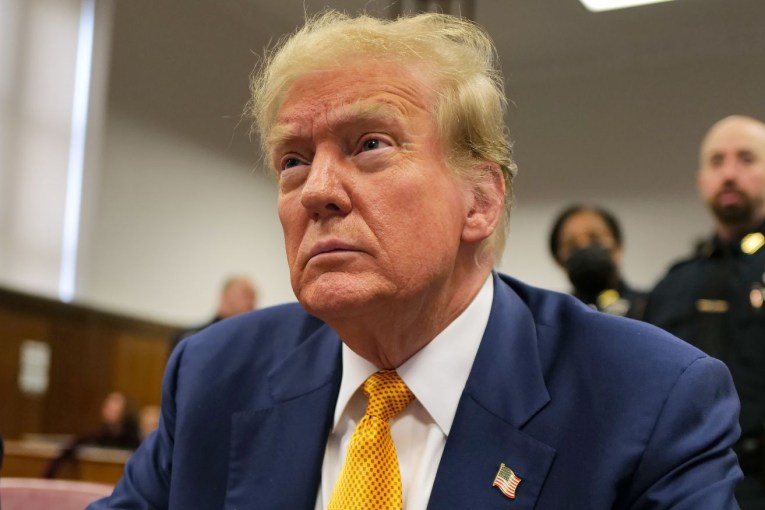Poisoned Kremlin critic Alexei Navalny detained in Russia
Russian opposition leader Alexei Navalny has been arrested at a Moscow airport as he tried to enter the country from Germany, where he has spent five months recovering from nerve agent poisoning that he blames on the Kremlin.
Mr Navalny’s detention at passport control at Sheremetyevo airport was widely expected because Russia’s prisons service said he had violated parole terms from a suspended sentence on a 2014 embezzlement conviction.
The prisons service said he would be held in custody until a court rules on his case. No date for a court appearance was immediately announced.
European Council President Charles Michel called for the immediate release of Mr Navalny.
“The detainment of Alexei Navalny upon arrival in Moscow is unacceptable,” Mr Michel, who coordinates EU governments in Brussels, tweeted.
“I call on Russian authorities to immediately release him.”

Mr Navalny flew home to Russia on Sunday after recovering in Germany from his poisoning in August with a nerve agent. Photo: AAP
Mr Navalny, 44, who is President Vladimir Putin’s most prominent and determined foe, brushed off concerns about the arrest as he boarded the plane in Berlin with his wife Yulia.
“It’s impossible, I’m an innocent man,” he said.
Mr Navalny decided to leave Berlin of his own free will and wasn’t under any apparent pressure to leave Germany.
“This is a real act of bravery for Alexei Navalny to return to Russia, given that government agents already tried to kill him once,” Human Rights Watch Executive Director Kenneth Roth tweeted.
“But he understandably wants to be part of the pro-democracy movement in Russia, not a dissident in exile.”
Mr Navalny has sizeable popularity in Moscow. Many supporters on Sunday local time went to Vnukovo airport where his flight was scheduled to land, although it was diverted to Sheremetyevo without explanation.
Mr Navalny fell into a coma while aboard a domestic flight from Siberia to Moscow on August 20. He was transferred from a hospital in Siberia to a Berlin hospital two days later.
Labs in Germany, France and Sweden established that he was exposed to a Soviet-era Novichok nerve agent.
Russian authorities insisted that the doctors who treated Mr Navalny in Siberia before he was airlifted to Germany found no traces of poison and have challenged German officials to provide proof of his poisoning.
Russia refused to open a fully-fledged criminal inquiry, citing a lack of evidence that Mr Navalny was poisoned.

The Navalny family in Berlin’s Charite Hospital in September. Photo: Instagram
Last month, Mr Navalny released the recording of a phone call he said he made to a man he described as an alleged member of a group of officers of the Federal Security Service, or FSB, who purportedly poisoned him in August and then tried to cover it up. The FSB dismissed the recording as fake.
Mr Navalny has been a thorn in the Kremlin’s side for a decade, unusually durable in an opposition movement often demoralized by repressions.
He has been jailed repeatedly in connection with protests and was twice convicted of financial misdeeds in cases that he said were politically motivated.
He suffered significant eye damage when an assailant threw disinfectant into his face and was taken from jail to a hospital in 2019 with an illness that authorities said was an allergic reaction but that many suspected was poisoning.
A lawyer by training, he began his rise to prominence by focusing on corruption in Russia’s murky mix of politics and business.
In 2008, he bought shares in Russian oil and gas companies so he could push for transparency as an activist shareholder.








